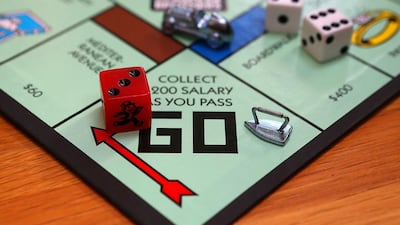As the economy continues to be under contractionary pressure, it is high time we took an in-depth look at one of the major constraints to its growth. As we know, it is entrepreneurs building start-ups that form the foundation of any economy. However, as I have argued before, monopolies stifle entrepreneurship. The greater the number of monopolies, the greater the value destruction in the economy.
I have argued this many times. Now I’d like to show exactly how much all these monopolies, the agencies on electronics, restaurants, medicine, etc might cost the economy in dollar terms. You will be shocked.
Before we get to pricing let us understand the value of a commercial licence to operate a business. In a free market capitalism framework, the value is close to zero. For example, in the GCC, most businesses require a licence that costs a few thousand dirhams at most. If you pay much more than that then you are paying for a regulated activity or something exclusive. This insight allows us to understand the value of monopolies.
Information around monopolies, in the GCC, is usually opaque. Perhaps nobody wants you to know how much the monopolist is making from their monopoly. But one sector was interestingly opened up and that is telecoms. Saudi Arabia was perhaps the most sought-after market and a consortium led by Etihad Etisalat won the auction for the second telecommunications licence in Saudi in 2004. Before I tell you the amount I want to make clear that this was not for a monopoly but a much weaker duopoly, two companies. They bid 12.2 billion Saudi riyals, or about US$3.25bn – Dh11.95bn.
This amount of money, quite simply, paid for the right to access the Saudi market. That means that the original monopoly that Saudi Telecom Company had enjoyed cost the Saudi government at least $3.25bn, or probably much more, in forgone fees. Think of it in these terms: what would an auction of the first Saudi licence have garnered? In the case of telecommunications companies in the UAE the Government recognises the value of providing a monopoly, duopoly or oligopoly and therefore taxes the telcos.
There are two problems with such a response. First and foremost it is not applied to all the monopolies. Does a car dealer in an emirate pay a tax on the monopoly that he holds? Why shouldn’t the Government tax that monopoly just as it taxes the telco duopolies? Better yet, why not have the Government auction the monopoly to the highest bidder? Best of all, why not simply abolish the monopoly legislation and tax/fine anyone involved in perpetuating any monopolies?
Such monopolies are not restricted to private citizens. The Government also can engage in them, but at least we as citizens and residents all benefit as opposed to when it is a sole private monopolist. For example, in Dubai, the Roads and Transport Authority owns the main taxi service and franchises the rest. This is not optimal as we have a near monopoly because the largest taxi fleet is owned by the Government - in particular the regulator of taxis. Before we pile on to the RTA, let’s see if we can help them. Looking at things from the outside there seem to be two main issues: government revenue and citywide logistical coordination – for example, if there is a big conference ending you want a lot of taxis to show up.
How can we deal with this if we fully privatise? On the revenue side it is easy, tax the income. I promise you that if you privatise all taxis then you will find businessmen ready to pay taxes and bid for the licences. This would be a good way to introduce corporate taxation into the country.
What about logistical support for city functions? Easy, go back to capitalistic basics and learn from Uber. The RTA gets to designate priority situations and allows the taxi companies to apply surge pricing. Better yet, have the companies bid on what their surge premium would be and the RTA can choose the lowest, thus protecting Dubai’s citizens, residents and guests. Capitalism, tempered by government policy, always works.
The best thing for the RTA if it implements such a strategy? It releases its balance sheet that is tied up with a taxi fleet and redeploy it to something innovative that leapfrogs Dubai forward.
The strange thing is that we are already used to auctions. Yes, telecommunications licences but also, for a simple example, motor vehicle licence plates. Or our airline auctions for upgrades. Or cars impounded by the authorities.
We have removed subsidies from all, including the middle class and the poor. Why do we continue to subsidise the super rich? Is 45 years of legislated profit not enough for them?
A final thought. If we are going to continue to subsidise the super rich at the very least let’s introduce an inheritance tax. I’m getting tired of inheritors and monopolists confusing themselves for businessmen. They aren’t. They’re suffocating our entrepreneurs.
Sabah Al Binali is an active investor and entrepreneurial leader with a track record of growing companies in the Mena region. You can read more of his thoughts at al-binali.com.
business@thenational.ae
Follow The National's Business section on Twitter

